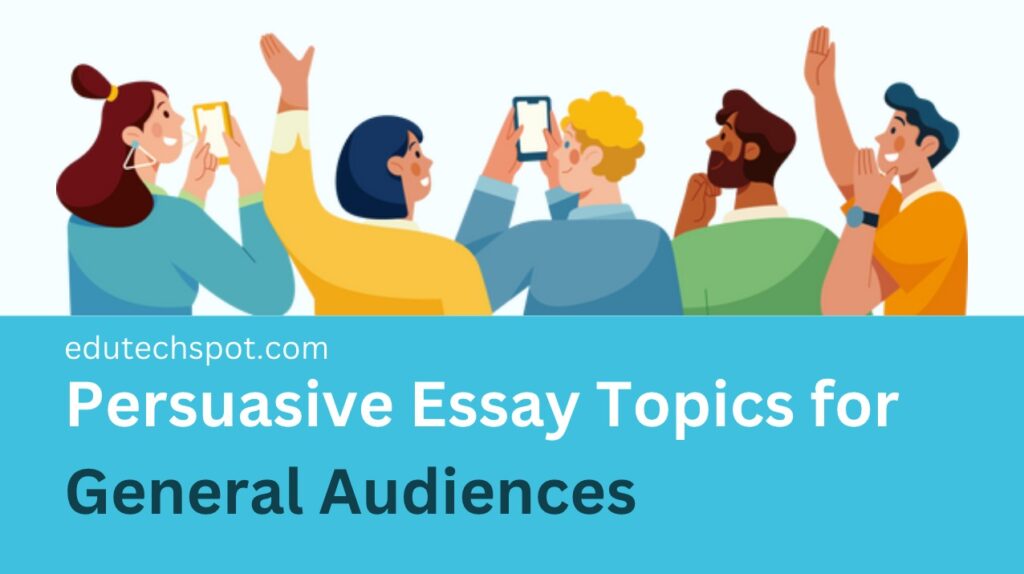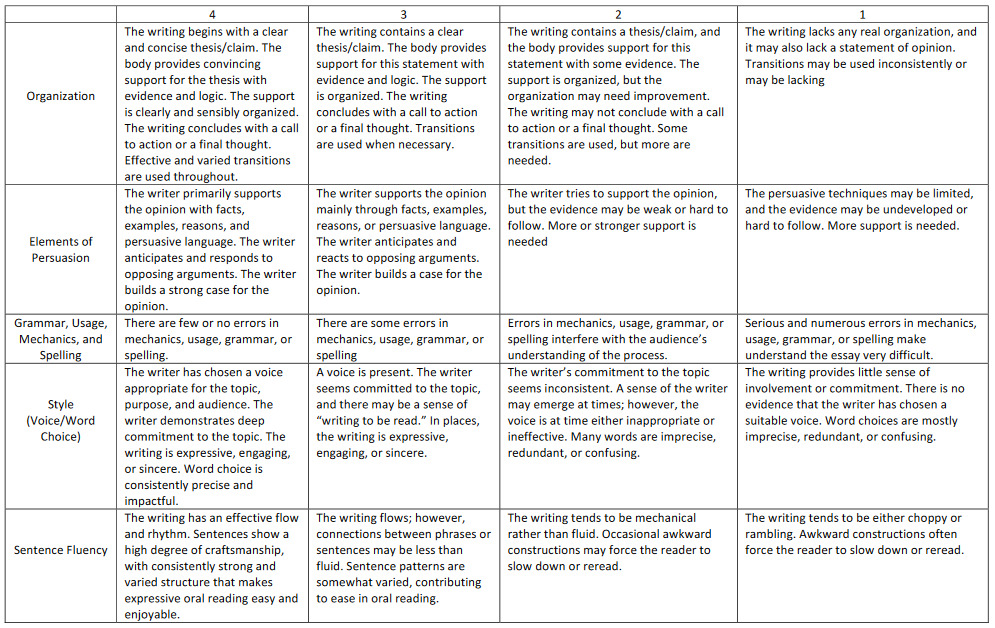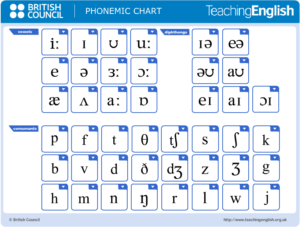Persuasive Essay Topics. As a writing and speaking teacher, I’ve witnessed countless students embark on the rewarding journey of persuasive communication. One crucial step in this journey is the selection of a compelling topic, the cornerstone of any persuasive essay. Whether you’re a high school student searching for an engaging subject, a college scholar diving into complex issues, or an aspiring writer aiming to captivate diverse audiences, the art of persuasion begins with the right choice of topic. Furthermore, as a teacher, you should include it in your lesson plan.
In this comprehensive guide, I’ll draw upon my experience to offer a curated collection of persuasive essay topics, carefully tailored to various interests and levels of expertise. From the significance of financial literacy in high schools to the ethical considerations of AI in healthcare, we’ll explore an array of subjects to ignite your passion and guide your persuasive writing endeavors. So, let’s embark on this journey together and discover the perfect topic that not only sparks conversations but also empowers you to influence minds and inspire change.
Persuasive Essay Topics: Comprehensive Guide

Section 1: Understanding Persuasive Essays
Persuasive essays are a common assignment in schools and universities. They aim to develop critical thinking and persuasive communication skills in students. These essays require you to take a stance on a particular issue or topic and provide compelling arguments to convince the reader of your point of view.
Purpose of Persuasive Essays:
The primary goal of a persuasive essay is to persuade or convince the reader to adopt your perspective on a given topic. Whether you’re discussing a social issue, debating a philosophical concept, or presenting an argument related to your field of study, your job is to make a convincing case.
Selecting the Right Topic:
One of the critical aspects of writing a persuasive essay is choosing the right topic. Your choice can greatly impact the success of your essay. To select an effective persuasive essay topic, consider the following criteria:
- Relevance: The topic should be current and relevant to your audience’s interests or concerns.
- Interest: You should have a genuine interest in the topic, as this enthusiasm will be reflected in your writing.
- Depth: Ensure the topic has sufficient depth for exploration. It should allow you to present multiple arguments and evidence.
- Audience: Consider the preferences and expectations of your audience. A topic that resonates with them is more likely to be persuasive.

Section 2: Tips for Choosing a Persuasive Essay Topic
Selecting the perfect persuasive essay topic requires careful consideration and creativity. Here are some tips to help you choose a compelling and engaging topic:
1. Relevance: Start by considering current events, societal issues, or subjects directly related to your academic field. A relevant topic is more likely to captivate your readers’ interest.
2. Personal Interest: Choose a topic that genuinely interests you. Your enthusiasm will shine through in your writing and make your arguments more convincing.
3. Depth of Discussion: Ensure the topic has enough depth to explore. It should allow you to present multiple arguments, counterarguments, and supporting evidence. Shallow topics can limit your essay’s persuasiveness.
4. Understanding Your Audience: Consider the preferences and expectations of your audience. A topic that resonates with them is more likely to be persuasive.
5. Research Availability: Check the availability of credible sources and research material related to your chosen topic. A well-researched essay is more persuasive.
6. Uniqueness: If possible, opt for a unique or less-explored perspective on a common topic. Fresh ideas can engage your readers more effectively.
7. Balanced Controversy: Choose a topic with a degree of controversy. A balanced debate with valid arguments on both sides makes for a more engaging essay.
8. Ethical Considerations: Keep ethical considerations in mind. Avoid topics that may be offensive or controversial without adding significant value to the discussion.
Notice that the process of selecting a persuasive essay topic can be as rewarding as writing the essay itself. Based on my experience, once you’ve picked a topic, the next step is to delve into research and build a strong argument.

Section 3: Persuasive Essay Topics for High School
High school students often face the challenge of selecting a persuasive essay topic that not only aligns with their academic interests but also engages their peers. Here are ten persuasive essay topics tailored for high school students, each with a brief description or context:
- The Importance of Teaching Financial Literacy in High Schools: Explore the benefits of integrating financial literacy into the high school curriculum, equipping students with essential life skills.
- Should Students Have a Say in Curriculum Development?: Discuss the idea of involving students in shaping their own education by contributing to curriculum decisions.
- The Impact of Bullying on Mental Health and Academic Performance: Analyze the effects of bullying on both the mental well-being and academic success of high school students.
- Uniforms or Freedom? Exploring the School Dress Code Debate: Engage in the ongoing debate about the necessity of school dress codes and their implications for students’ freedom of expression.
- The Role of Technology in Education: Boon or Bane?: Assess the impact of technology on the learning process in high schools, addressing its advantages and disadvantages.
- Promoting Environmental Awareness in High Schools: Discuss the importance of teaching students about environmental issues and encouraging sustainable practices.
- Should High School Start Times Be Adjusted for Better Sleep?: Explore the debate on whether high school start times should be adjusted to better align with students’ sleep patterns and health.
- The Influence of Pop Culture on Teenagers: Analyze the role of pop culture, including music, movies, and social media, in shaping the attitudes and behaviors of high school students.
- The Value of School Vouchers and School Choice Programs: Debate the pros and cons of school voucher programs and their potential impact on the education system.
- Is Standardized Testing an Effective Measure of Student Ability?: Examine the effectiveness of standardized tests in evaluating students’ skills and knowledge, and discuss potential alternatives.
These topics cover a wide range of subjects, from education to social issues, providing high school students with a diverse selection of ideas for their persuasive essays. In the following sections, we will present persuasive essay topics suitable for college students and general audiences.

Section 4: Persuasive Essay Topics for College
College students often engage with more complex and mature topics. Here are ten persuasive essay topics tailored for college students, each with a brief description or context:
- The Role of College Education in Career Success: Explore the correlation between obtaining a college degree and long-term career prospects.
- The Impact of Student Loan Debt on Future Generations: Discuss the implications of the rising student loan debt crisis and its effect on future generations.
- Balancing Work and College: The Pros and Cons of Part-Time Jobs: Analyze the benefits and drawbacks of working part-time while pursuing a college degree.
- The Value of Liberal Arts Education in the 21st Century: Explore the importance of a well-rounded education, including the humanities, in the modern workforce.
- Ethical Implications of Genetic Engineering: Discuss the ethical concerns surrounding genetic engineering and its application in medicine and agriculture.
- Debating College Athlete Compensation: Examine the debate on whether college athletes should be compensated for their participation in sports.
- The Influence of Social Media on Personal Relationships: Analyze the impact of social media on personal interactions and relationships among college students.
- The Future of Renewable Energy Sources: Discuss the potential of renewable energy sources in meeting future energy needs and addressing climate change.
- Exploring the Role of Artificial Intelligence in Healthcare: Analyze how AI is revolutionizing the healthcare industry and the ethical considerations it raises.
- The Benefits and Drawbacks of Online Learning: Debate the advantages and disadvantages of online education, particularly in a post-pandemic world.
These college-level persuasive essay topics cover a range of subjects, from education and technology to ethics and societal issues. They provide college students with thought-provoking ideas for their persuasive essays.

Section 5: for General Audiences
In this section, we’ll offer ten persuasive essay topics that can appeal to a broader audience, including adults and those interested in a variety of subjects. Each topic includes a brief description or context:
- Universal Basic Income: A Solution to Economic Inequality: Explore the concept of universal basic income as a potential remedy for economic disparities in society.
- The Role of Governments in Addressing Climate Change: Discuss the responsibilities of governments in combating climate change and ensuring environmental sustainability.
- The Impact of Social Media on Democracy: Analyze how social media platforms influence public opinion, politics, and democratic processes.
- The Ethics of Animal Testing in Scientific Research: Examine the ethical considerations surrounding the use of animals in scientific experiments.
- Exploring Alternative Medicine: Complementary or Contradictory?: Discuss the role of alternative and complementary medicine in modern healthcare and its benefits and drawbacks.
- The Future of Space Exploration: Beyond the Moon and Mars: Debate the significance of exploring outer space, including missions to distant planets and beyond.
- The Influence of Technology on Mental Health: Analyze how technology, particularly smartphones and social media, affects the mental well-being of individuals.
- The Global Impact of Cybersecurity Threats: Discuss the global consequences of cyberattacks and the importance of cybersecurity in the digital age.
- The Ethics of Artificial Intelligence in Autonomous Vehicles: Examine the ethical dilemmas related to self-driving cars and their decision-making abilities.
- The Value of International Diplomacy in Resolving Conflicts: Explore the role of diplomacy in preventing and resolving international conflicts.
These persuasive essay topics are suitable for a diverse audience, covering issues related to ethics, technology, global concerns, and more.

Section 6: Unique and Creative Persuasive Essay Topics
If you’re looking for persuasive essay topics that stand out and capture the reader’s attention, consider these ten unique and creative ideas:
- The Influence of Color Psychology in Marketing and Design: Discuss the psychological impact of colors in advertising and design choices.
- The Art of Persuasion in Classic Literature: Analyze how persuasion is portrayed in classic literature and its relevance in modern society.
- Exploring the Future of Space Tourism: Discuss the prospects and challenges of space tourism as a future travel option for civilians.
- The Impact of Music on Human Emotions: Analyze how different types of music influence emotions and well-being.
- The Power of Storytelling in Marketing and Branding: Discuss the effectiveness of storytelling in marketing and creating strong brand identities.
- The Ethics of Cloning for Medical Advancements: Examine the ethical considerations surrounding human cloning for medical purposes.
- The Role of Humor in Persuasion: Discuss how humor can be a powerful tool in persuasive communication.
- The Art of Public Speaking: Lessons from Great Orators: Analyze the techniques and strategies used by famous orators throughout history.
- The Impact of Virtual Reality in Education: Discuss how virtual reality technology can transform the learning experience.
- Exploring the Mind-Body Connection in Health and Wellness: Examine the relationship between mental and physical health in holistic well-being.
These unique and creative persuasive essay topics offer a fresh perspective on various subjects, from literature and marketing to technology and healthcare. They provide an opportunity to explore unconventional ideas and engage your readers in captivating discussions.
50 Persuasive Essay Topics for High School Students: Engage, Educate, and Inspire
When it comes to high school education, persuasive essays are an excellent way for students to develop their critical thinking and communication skills. These essays allow young learners to express their opinions, research, and debate on various topics. However, finding the right persuasive essay topic can be a challenge. To make things easier for high school students, we’ve compiled a list of 50 engaging persuasive essay topics that encourage thoughtful discussion and debate.
- The Importance of Teaching Financial Literacy in High Schools
- Should Students Have a Say in Curriculum Development?
- The Impact of Bullying on Mental Health and Academic Performance
- Uniforms or Freedom? Exploring the School Dress Code Debate
- The Role of Technology in Education: Boon or Bane?
- Promoting Environmental Awareness in High Schools
- Should High School Start Times Be Adjusted for Better Sleep?
- The Influence of Pop Culture on Teenagers
- The Value of School Vouchers and School Choice Programs
- Is Standardized Testing an Effective Measure of Student Ability?
- Teaching Emotional Intelligence in High Schools
- The Importance of Sex Education: Comprehensive vs. Abstinence-Only
- Single-Sex Education: Is It Beneficial or Detrimental?
- Addressing the Issue of Teenage Pregnancy: Comprehensive Sex Education
- Banning Junk Food in School Cafeterias
- The Pros and Cons of Homeschooling
- Cell Phones in the Classroom: A Distraction or a Learning Tool?
- Exploring the Impact of Social Media on Teenagers
- The Effects of Cyberbullying on High School Students
- Teaching Tolerance and Promoting Diversity in High Schools
- The Benefits of Learning a Second Language
- Should High School Athletes Be Drug Tested?
- Censorship in Schools: Balancing Free Speech and Appropriate Content
- Is Homework Necessary for Academic Success?
- The Impact of Music and Arts Education on Student Development
- The Role of Religion in Public High Schools
- Teaching Critical Thinking Skills: Is It Adequate in High Schools?
- Drug Education: The Importance of Substance Abuse Prevention
- Student Leadership and Extracurricular Activities: Building Well-Rounded Individuals
- The Ethics of Animal Testing: Should High Schools Use Animals in Science Classes?
- The Influence of Video Games on Teen Behavior
- Teaching Internet Safety and Digital Literacy in High Schools
- Promoting Physical Education and Active Lifestyles
- Inclusion of LGBTQ+ Education in High School Curriculum
- The Significance of Financial Aid Programs for College-Bound Students
- Civics Education: Preparing Students for Active Citizenship
- Encouraging High School Students to Volunteer in Their Communities
- Exploring Mental Health Education in High Schools
- The Impact of Social and Economic Disparities on High School Education
- Mandatory Community Service: Encouraging Civic Responsibility
- Exploring the Effects of Climate Change in Environmental Science Classes
- The Role of Literature in Developing Empathy and Understanding
- Teaching Time Management and Study Skills
- Addressing the Issue of Student Stress: Coping Mechanisms and Solutions
- The Importance of Teaching Consent and Respect in Relationships
- The Role of High Schools in Combating Substance Abuse
- Should High School Graduation Requirements Be More Flexible?
- Teaching Students About Personal Finance and Budgeting
- Is Advanced Placement (AP) Worth the Extra Effort?
- Examining the Impact of High-Stakes Testing on Education Quality
These 50 persuasive essay topics for high school students cover a wide range of issues, allowing young learners to explore and articulate their opinions on critical subjects. High school is a time for students to develop their voices, learn to think critically, and engage in meaningful discussions. These topics offer the opportunity to do just that, while also helping to expand their knowledge and understanding of the world around them. Whether it’s addressing contemporary societal issues or delving into traditional educational debates, these topics empower high school students to engage, educate, and inspire. So, pick a topic, and let the persuasive writing begin!
Extra List of Persuasive Topics
Persuasive Topics for Debates
Here is a compilation of persuasive essay topics that you can explore and debate:
- The Use of Cell Phones in Elementary and High Schools
- School Uniforms: A Necessary Requirement?
- Paying College Athletes for Their Performance
- Tuition-Free State Colleges for In-State Residents
- Mandatory Year of Community Service for All Americans
- Compulsory Foreign Language Courses in Schools
- Legalizing Marijuana for Medicinal Purposes
- Lowering the Voting Age to Thirteen
- Raising the Driving Age to Twenty-One
- Paying Students for Good Grades
- Allowing Illegal Immigrants to Obtain Driver’s Licenses
- Replacing Textbooks with Notebook Computers
- Requiring Basic Skills Tests for High School Graduation
- Fundraising through Candy and Sugary Drinks Sales in Schools
- Serving French Fries and Fried Potato Products in School Lunches
- Including Gym Grades in Students’ GPAs
- Allowing Girls to Participate in Boys’ Sports Teams
- Sales of Violent Video Games to Teens
- Segregating Boys and Girls in School Classes
- Access to Birth Control for Teenage Girls without Parental Permission
- Implementing a Universal Health Care Program
- Reforming Immigration Laws
- Recognizing Civil Unions by the Federal Government
- Punishing Illegal Music and Movie Downloaders
- Academic Performance Requirements for School Athletes
- Allowing Music with Profanity at School Dances
- Go-Go Bands Performing at School Dances
- Use of MP3 Players in Classrooms
- Offering Fast Food Options in Schools
- Providing Free Public Wi-Fi in Cities
- Taxation of Junk Food and Fatty Snacks
- Stringent Security Screenings for Airplane Travelers
- Basic Skills Tests for Teachers Every Ten Years
- Ownership of Exotic Animals like Chimpanzees or Tigers
- Keeping Pit Bull Dogs as Pets
- Implementing a Bike-Sharing Program in Cities
- Imposing Ordinances for Non-Recycling
- Imposing Ordinances for Loud Music
- Stricter Penalties for Celebrities Who Break the Law
- Charging Larger Passengers for Extra Plane or Movie Tickets
- Licensing for Parenthood
- Stricter Federal Internet Content Restrictions
- Cursing on Daytime Television
- Inclusion of Sexual Education in Public Schools
- Providing Free Condoms to Students at School
- Suspending Students for Cyberbullying
- Allowing Corporate Advertising in Schools
- Eating During Class
- Protecting and Preserving Endangered Animals
- Students and Teachers as Friends on Facebook
- Open Campus Lunch Periods for Students
- Legalization of Abortions
- Abortion Legalization in Cases of Rape and Incest
- The Use of the Death Penalty for Violent Criminals
- Teaching World Religions in Public Schools
- Delaying School Start Times in the Morning
- Ending Overseas Military Operations by the USA
- Campaign Contributions from Corporate Lobbyists
- Doctor-Assisted Suicide for Terminal Patients
- Using Stem Cells from Aborted Fetuses for Medical Research
- Drug Testing for School Athletes
- Drug Testing for Professional Athletes
- Mandatory Community Service for High School Graduation
- Teens’ Access to R-Rated Movies
- State Tests in Languages for ESL Students
- Animal Testing for Human Product Safety
- Warning Labels on Unhealthy Fast Food
- Tariffs or Taxes on Foreign-Manufactured Products
- Monetary Rewards for Standardized Test Performance
- Enforcing Curfews for Those Under 17
- Closing Low-Performing Schools Based on Standardized Tests
- Minors Drinking Alcohol at Home with Parental Consent
- Allowing Students to Drop Out Before Age 18
- Alcohol Manufacturers Advertising on Television
- Part-Time Jobs for Students as Young as Fourteen
- License Suspension for Drunk Driving
- Retaining Students Who Fail Their Classes
- Minority Employment Quotas for Large Businesses
- Free College Tuition for High-Achieving Homeless Students
- Legal Status of Gambling and Sports Betting
- Trying Children Who Commit Violent Crimes as Adults
- Detaining Suspected Terrorists Without Trial
- Government Internet Censorship
- Dress Codes for Teachers
- Allowing Cell Phones for Teachers in the Classroom
- Euthanizing Dogs That Bite People
Possible Persuasive Writing Prompts
If you’re seeking inspiration for persuasive essays, consider the following prompts:
- Addressing Bullying: Should Schools or Parents Tackle the Issue?
- Advocating for a Cause: Convince Readers to Support Your Chosen Cause
- Online Communication vs. Interpersonal Skills: Which Is More Important?
- Volunteering: Encourage Others to Contribute to a Charitable Cause
- The Impact of TV Violence: Discuss Whether It Affects Society
- Language Learning in Schools: Should Native Speakers Receive Native Language Classes?
- Balanced News Coverage: Should Television Prioritize International and Global News?
- Mandatory Volunteer Hours: Are They Beneficial or Coercive?
- Parental Approaches to Allowance: Should It Be Linked to Behavior or Given Unconditionally?
- Single-Sex Education: Debate the Advantages and Disadvantages
- Minimizing TV Time: Convince Readers to Reduce TV Viewing
- Driving Age: Argue for the Appropriate Age for Driver’s Licenses
- School Searches: Balancing Student Privacy and Safety
- Breaking Harmful Habits: Persuade Readers to Quit a Detrimental Habit
- Military Service: Discuss the Merits of Mandatory Service
- Labeling Genetically Modified Foods: Argue for or Against GMO Labels
- The Role of Genetic Modification in Food: Convince Readers of Its Merits or Drawbacks
- Credit Card Solicitation in Schools: Discuss Whether It’s Exploitative or Educational
- Reality Television: Are These Shows Valuable or Just Entertainment?
- Banning Passenger Cars in Favor of Public Transportation
- Talk Show Aggressiveness: Debate the Extent of Acceptable Confrontation
- Personal Change for the Better: Encourage Others to Make Positive Life Changes
- Environmental Actions: Persuade Readers to Partake in Eco-Friendly Activities
- Promoting Physical Activity: Convince Readers to Lead a Healthier Lifestyle
- Politicians’ Private Lives: Should They Be of Public Concern?
- High Earnings for Professional Athletes: Discuss Whether They Are Justified
- Importance of Computers in Education: Evaluate Their Role
- Higher School Standards: Advocate for More Challenging Educational Criteria
- U.S. Foreign Aid: Discuss the Appropriateness of Its Allocation
- Sport Fishing: Debate the Ethics of the Sport
- School Security: Argue for Appropriate Measures
- Grading vs. Evaluation: Discuss Their Effectiveness in Education
- School Cafeteria Menus: Argue for Healthier Options
- School Uniforms: Take a Position on Their Implementation
- Media Ratings Systems: Evaluate Their Effectiveness
- Learning Foreign Languages: Discuss the Importance of Multilingualism
- Online Degrees: Consider the Viability of Entirely Online Education
- Education as a Right or Privilege: State Your Position
- Improving Hometowns: Advocate for Changes in Your Community
- Extending the School Year: Argue for or Against a Longer Academic Calendar
- Surveillance Cameras: Discuss Their Role in Public Safety
- Reading Classic Literature in Schools: Debate Its Relevance
- Parental Warnings on Music Lyrics: Take a Stand on Their Adequacy
- Fuel-Efficient Engines: Argue for Stricter Regulations
- The Ethicality of Zoos: Discuss Their Impact on Animals
- Selling Essays Online: Determine Their Legitimacy
- The Validity of SAT/ACT Exams: Assess Their Accuracy
- Sharing Music Across Generations: Persuade Others to Appreciate Your Music
- The Pledge of Allegiance: Mandatory, Voluntary, or Abandoned?
- The Futility of War: Discuss Thomas Mann’s Perspective
- The Nature of War: Assess Jeannette Rankin’s Perspective
- Explicit Lyrics Warning: Argue for Stronger Warnings on Music Labels
- Study Halls in High Schools: Advocate for Their Inclusion in Schedules
These topics and prompts can serve as a starting point for crafting your persuasive essays, allowing you to express your views and arguments effectively.
Section 7: Conclusion
In this guide, we’ve explored a diverse array of persuasive essay topics suitable for various audiences and interests. Choosing the right topic is the first step towards crafting a compelling persuasive essay, one that not only engages your readers but also inspires thoughtful reflection and discussion.
Whether you’re a high school student, a college student, or a writer addressing a general audience, the key to a successful persuasive essay is selecting a topic that aligns with your interests, the expectations of your readers, and the societal or academic context. As you embark on your essay-writing journey, remember the importance of in-depth research, well-structured arguments, and the art of persuasive communication.
If you’ve found a topic that resonates with you or have been inspired by the creative ideas presented here, it’s time to start crafting your persuasive essay. With your well-researched arguments and thoughtful presentation, you can influence minds and spark meaningful discussions.
Remember that persuasive essays are not just academic exercises; they are opportunities to explore and advocate for the issues that matter most to you. So, choose your topic wisely, research thoroughly, and craft an essay that persuades, informs, and inspires change.
Now, you have a selection of persuasive essay topics that cater to different tastes, interests, and levels of expertise. The world is full of issues waiting to be explored and discussed. It’s up to you to choose the topic that resonates with your passion and convictions.
So, go ahead, pick a topic, and start writing your persuasive essay. Your words have the power to make a difference and inspire change.
Good luck with your persuasive essay journey!
Feel free to use this article as a reference or as a template for your persuasive essay topics. If you need further assistance or have any specific questions, please don’t hesitate to ask.

Persuasive or Argumentative Essay Scoring Guide – Matrix – Rubrics
| Criteria | Exemplary (4) | Proficient (3) | Basic (2) | Insufficient (1) |
|---|---|---|---|---|
| Organization | The writing begins with a clear and concise thesis/claim. The body provides convincing support for the thesis with evidence and logic. The support is clearly and sensibly organized. The writing concludes with a call to action or a final thought. Effective and varied transitions are used throughout. | The writing contains a clear thesis/claim. The body provides support for this statement with evidence and logic. The support is organized. The writing concludes with a call to action or a final thought. Transitions are used when necessary. | The writing contains a thesis/claim, and the body provides support for this statement with some evidence. The support is organized, but the organization may need improvement. The writing may not conclude with a call to action or a final thought. Some transitions are used, but more are needed. | The writing lacks any real organization, and it may also lack a statement of opinion. Transitions may be used inconsistently or may be lacking. |
| Elements of Persuasion | The writer primarily supports the opinion with facts, examples, reasons, and persuasive language. The writer anticipates and responds to opposing arguments. The writer builds a strong case for the opinion. | The writer supports the opinion mainly through facts, examples, reasons, or persuasive language. The writer anticipates and reacts to opposing arguments. The writer builds a case for the opinion. | The writer tries to support the opinion, but the evidence may be weak or hard to follow. More or stronger support is needed. | The persuasive techniques may be limited, and the evidence may be undeveloped or hard to follow. More support is needed. |
| Grammar, Usage, Mechanics, and Spelling | There are few or no errors in mechanics, usage, grammar, or spelling. | There are some errors in mechanics, usage, grammar, or spelling. | Errors in mechanics, usage, grammar, or spelling interfere with the audience’s understanding of the process. | Serious and numerous errors in mechanics, usage, grammar, or spelling make understanding the essay very difficult. |
| Style (Voice/Word Choice) | The writer has chosen a voice appropriate for the topic, purpose, and audience. The writer demonstrates deep commitment to the topic. The writing is expressive, engaging, or sincere. Word choice is consistently precise and impactful. | A voice is present. The writer seems committed to the topic, and there may be a sense of “writing to be read.” In places, the writing is expressive, engaging, or sincere. | The writer’s commitment to the topic seems inconsistent. A sense of the writer may emerge at times; however, the voice is at times either inappropriate or ineffective. Many words are imprecise, redundant, or confusing. | The writing provides little sense of involvement or commitment. There is no evidence that the writer has chosen a suitable voice. Word choices are mostly imprecise, redundant, or confusing. |
| Sentence Fluency | The writing has an effective flow and rhythm. Sentences show a high degree of craftsmanship, with consistently strong and varied structure that makes expressive oral reading easy and enjoyable. | The writing flows; however, connections between phrases or sentences may be less than fluid. Sentence patterns are somewhat varied, contributing to ease in oral reading. | The writing tends to be mechanical rather than fluid. Occasional awkward constructions may force the reader to slow down or reread. | The writing tends to be either choppy or rambling. Awkward constructions often force the reader to slow down or reread. |
Teachers should use the scoring guide for persuasive essays as it provides a systematic and objective framework for assessing students’ writing skills and their ability to construct convincing arguments. In my own teaching experience, I’ve found this guide to be an invaluable tool in several ways.
Firstly, it establishes clear expectations for students, allowing them to understand what’s required to excel in their persuasive writing. By breaking down the assessment into specific criteria, it demystifies the grading process and helps students comprehend the elements that contribute to a strong persuasive essay.
During class, I often use this scoring guide as a reference point, discussing each criterion with students. We talk about the importance of a well-structured argument, the need for strong evidence, the role of transitions, and the significance of grammar and style. It serves as a roadmap for our discussions, making it easier for students to see their strengths and areas that need improvement.
One common issue I’ve encountered is that students sometimes struggle with organizing their arguments effectively. The scoring guide is particularly helpful in addressing this. We discuss the importance of a clear thesis, supporting evidence, and transitions to ensure logical flow. Students can pinpoint where their essays may lack organization, and this guide becomes a tool for self-assessment and revision.
In terms of problems, students can sometimes misinterpret the guide’s criteria or need clarification on specific points. It’s crucial for the teacher to be available for questions and offer examples to illustrate each level of performance for every criterion.
Ultimately, this scoring guide acts as a roadmap for both students and teachers. It helps create a shared understanding of what constitutes a strong persuasive essay and empowers students to take ownership of their writing. It also facilitates more objective and consistent grading, promoting fairness and transparency in the assessment process.
This is supported by this academic research paper.


